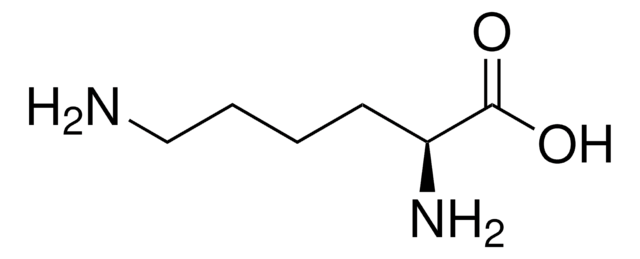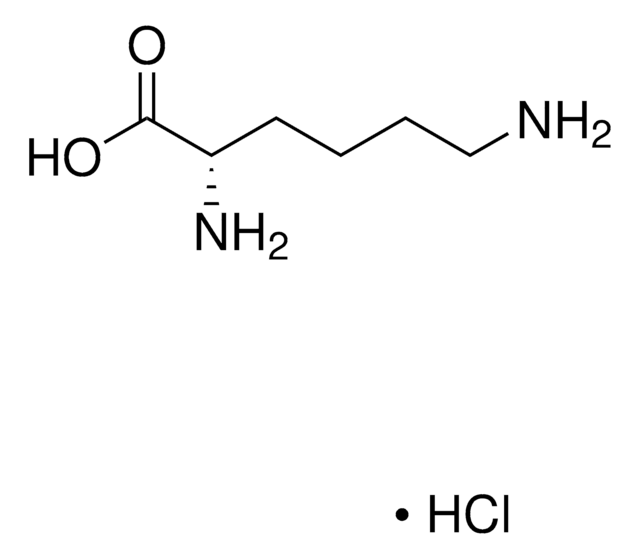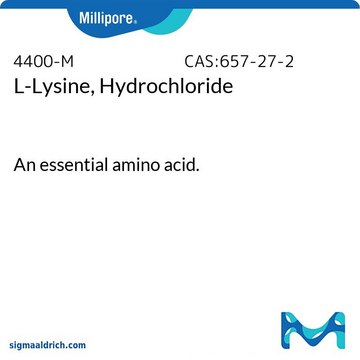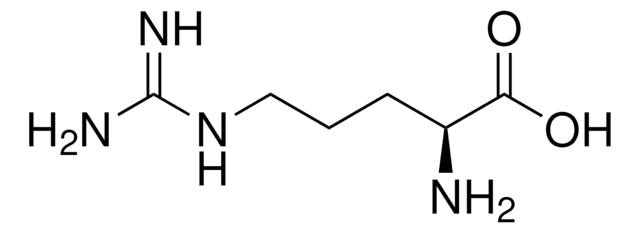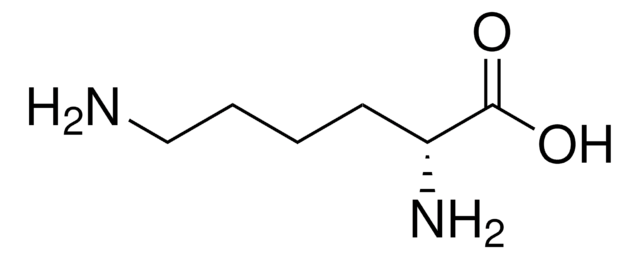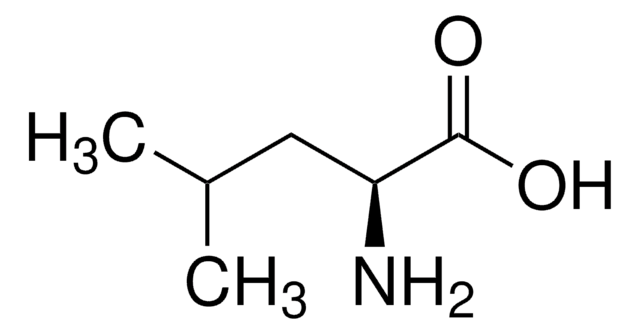L5501
L-Lysine
≥98% (TLC), suitable for ligand binding assays
Synonym(s):
(S)-2,6-Diaminocaproic acid
Sign Into View Organizational & Contract Pricing
All Photos(4)
About This Item
Linear Formula:
H2N(CH2)4CH(NH2)CO2H
CAS Number:
Molecular Weight:
146.19
Beilstein:
1722531
EC Number:
MDL number:
UNSPSC Code:
12352209
eCl@ss:
32160406
PubChem Substance ID:
NACRES:
NA.26
Recommended Products
Product Name
L-Lysine, ≥98% (TLC)
Quality Level
Assay
≥98% (TLC)
form
powder
technique(s)
ligand binding assay: suitable
color
white to off-white
mp
215 °C (dec.) (lit.)
solubility
H2O: soluble
SMILES string
NCCCC[C@H](N)C(O)=O
InChI
1S/C6H14N2O2/c7-4-2-1-3-5(8)6(9)10/h5H,1-4,7-8H2,(H,9,10)/t5-/m0/s1
InChI key
KDXKERNSBIXSRK-YFKPBYRVSA-N
Looking for similar products? Visit Product Comparison Guide
General description
L-lysine contains basic side chain and is hydrophilic in nature. The N-butyl amino group in the side chain is found to be protonated at physiological pH. Upon degradation, L-lysine gives ketone bodies. Transamination of lysine with α-ketoglutarate produces acetoacetyl CoA. L-lysine serves as a precursor for secondary metabolites, such as β-lactam antibiotics. It also serves as a precursor for the biosynthesis of α-aminoadipic acid.
Application
L-Lysine is an essential proteinogenic α amino acid used in a wide range of applications. It has been used:
- as a supplement in cell culture media
- as a substrate for enzymes such as L-lysine oxidase (EC 1.4.3.14)
- as a component of poly-lysine polymers
- as a substrate for oxidation and glycation mechanism studies
- in the preparation of cobaltous lysine
Storage Class Code
11 - Combustible Solids
WGK
WGK 1
Flash Point(F)
Not applicable
Flash Point(C)
Not applicable
Personal Protective Equipment
dust mask type N95 (US), Eyeshields, Gloves
Choose from one of the most recent versions:
Already Own This Product?
Find documentation for the products that you have recently purchased in the Document Library.
Customers Also Viewed
Our team of scientists has experience in all areas of research including Life Science, Material Science, Chemical Synthesis, Chromatography, Analytical and many others.
Contact Technical Service